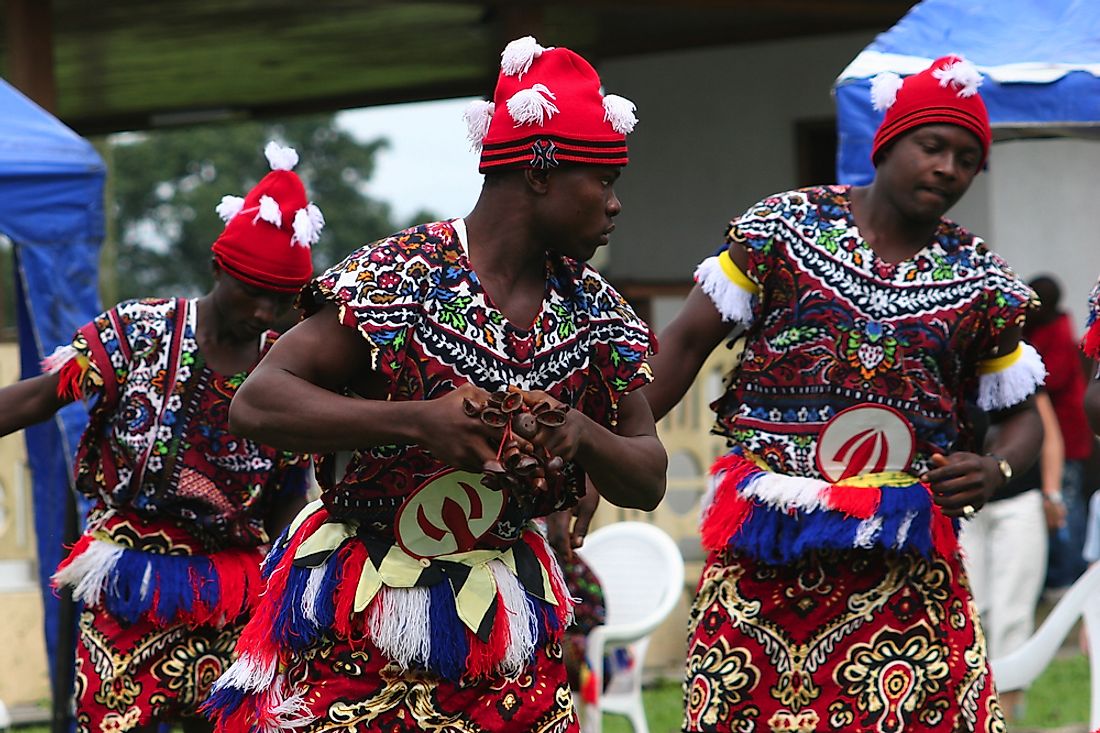The Nigerian People and Culture

People who originate from Nigeria are called Nigerians. They hail from an area that is home to more than hundreds of dialects and ethnic groups, which have been commingled as a result of economic circumstances. As tribal states have given way to a modern nation, the shift has propelled the groups to settle down in regions well outside of their own religious, linguistic, and racial backgrounds.
Nigeria is one of the most ethnically diverse countries on the planet. Nigeria has more than 500 languages and no less than 250 ethnic groups, of which the Yoruba from the west of the country and the Igbo from the southeast are the most predominant. A little more than half of all Nigerians are of the Christian faith, while most of the rest are Islamic. English serves as a common language, used mainly as a means to bridge the communication gaps stemming from the presence so many languages, as well as a way to reach out and connect with the global business community.
4. Architecture
Traditionally, Nigerian architecture has been as widely varied as its demography. That said, with the changes brought about by the nation's impressive economic advancements, many Nigerian towns are increasingly beginning to resemble Western cities. Influences on construction from the Muslim world are much more apparent in the northern parts of the country, where the establishments are still very traditional.
Traditional Nigerian houses are constructed based on the environment that they are in. This pattern of building to suit the need on hand is perfectly illustrated in the Ijo homes, which are built upon wooden stilts so as to stand over large bodies of water like rivers, lakes, swamps, and creeks. These houses are typically made out of bamboo and other wood materials held together using mud and vines, and then covered with the ubiquitous banana leaf with raffia palms for a roof.
3. Cuisine
Nigerian eating habits have become increasingly influenced by the West, and this is clearly apparent in the presence of frozen, prepackaged, and canned food items available in any of Nigeria’s Western-style grocery shops. Alongside these large supermarkets are the many foreign restaurants with American-sounding names, though many are often too costly for the average Nigerian citizen. The combination of Nigeria’s traditional dishes with those of the favorites of the West has transformed these people’s dining habits, making way for a diverse taste in food as colorful as their many dialects and subgroups.
In the rural areas of Nigeria, the hand is still the main "utensil" used for eating, with the staple foods remaining to be sweet potatoes, yams, and corn. These starches are typically ground into thick pastes, then seasoned liberally with herbs and other spices. Oil-based stews seasoned with chicken, okras, onions, and beef are very common accompaniments to the carbohydrate-rich dishes, while fruits like mangoes, oranges, and bananas are particular favorites for natural desserts and snacking.
2. Cultural Significance
With English being the common language, Nigerians also speak, read, and write in local tongues as well, typically Yoruba, Igbo, or Hausa depending on the region of the country. In all of these languages, however, these people are world famous for their rich and vibrant literature.
Nigerian films are heavily influenced once again by the movie culture of the developed world, and their cinematic industry is referred to as "Nollywood", which reaches silver screens even in the more conservative and traditional northern sections of the country. Like much of the world, soccer (association football) is the most popular sport among Nigerians, with many of their young people dreaming of one day playing professional football on the international level.
Nigerian popular music is itself a fusion, incorporating traditional tribal beats with every form of global music imaginable. A former British protectorate, the southern regions of the country remain closely linked to other English-speaking countries, including other former British colonies in Africa, as well as the US, Canada, New Zealand, Australia, and the United Kingdom itself. The predominately Muslim north, meanwhile, exhibits more cultural affinity towards the Arabic-speaking world of North Africa and the Middle East.
1. Threats
Nigeria’s educational system is far more advanced in comparison to those of most of its neighboring countries. However, those who can afford to do so often go abroad to study, and later on, ultimately work within their chosen careers. This has left the talent pool in the country diluted. This is unfortunate, since the country needs all the help it can get and the loss of many of their most brilliant minds has greatly affected their progress and development. The majority of the scientific endeavors remaining in Nigeria are administered by outsiders and established by foreign corporations, with the intent of making use of the country’s rich, and largely untapped, natural resources.
Unchecked population growth threatens to push Nigeria's infrastructure and resources beyond the breaking point. Furthermore, sectarian violence between tribes and religious groups serves as a real and present danger to the country's people, especially in the northeast areas near the borders with Chad, Niger, and Cameroon, where the extremist group Boko Haram is most active. The group seeks to establish a Sunni state in the country governed by Sharia law, and carries out terrorist activity against opposing Islamic factions, especially Izalas, Sufis, and Shiites, as well as Christians, leftists, and those purveying Western cultural values. More recently, they have reportedly linked up with, and been increasingly influenced by, ISIS, a similar group operating in the Levant region in the Middle East.











